As the Bears Ears debate heated up last summer, monument proponents revealed sentiments that went far beyond support for a presidential proclamation. Again and again, the argument included a near unanimous loathing for the Rural West, especially the many small Utah communities that were founded by Mormon settlers almost 150 years ago. The loathing went so deep as to suggest that most of these rural towns had no reason to exist–and that they should “disappear.”.
One Facebook commenter wrote:
Every small town in the United States has been in decline since 1991. Since towns like Esclente [sic] are extremely small and arguably should not have even existed in the first place, of course they are going to be the first to disappear. The national monument may have been the catalyst, but it cannot be entirely to blame. Yes it is sad to watch your town die, but there is a reason for its death. You are living in a place that is not sustainable and you want to keep it alive for selfish reasons. Sometimes people need to make difficult sacrifices in order to help the greater population. Even if you do have to pack up your family and move, at least no one is driving your family out into the desert to die like the last group of people who occupied the area.”
Another comment, posted by a Moabite deeply involved in the mountain biking/recreation industry had little sympathy for ‘Old Westerners…
“Certainly there are many socio -economic problems (in Moab) but many of them are self induced…Starting wages for a line cook in this town is fifteen a hour.. tips are a unrecordable income in Moab, waiters and waitress, guides all make a very good living here, and get to live the lifestyle they chose with big blocks of time off. There is however a part of our population that is unwilling to work at service jobs by there (sic) own choosing. Holding out for those high paying extraction jobs which come and go.”
Or to put it more succinctly, it’s time for the rural west to go…The ‘Old West,’ and even the ‘Original West’ —the Native Americans that came first—in fact, anyone who clings to traditional lifestyles and customs and occupations–has no place, no future, in an amenities/recreation/tourism-d
No one embraces that belief more adamantly or unswervingly than Mark Bailey. Mr. Bailey is “a retired partner from Wasatch Advisors, Inc., an investment management firm headquartered in Salt Lake City.” He is the founder of Torrey House Press in Torrey Utah. He notes that recently Torrey House has “gained financial support from the public and from The Wilderness Society and Southern Utah Wilderness Alliance.”
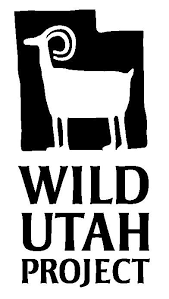 And he is a board of directors member and treasurer of Wild Utah Project, a non-profit environmental organization that, “serves all who value our relationships with wildlife. We achieve our mission by holding agencies accountable…through attitude-changing outreach to decision makers; through citizen participation in fieldwork and advocacy; and through our wildlife and science programs.”
And he is a board of directors member and treasurer of Wild Utah Project, a non-profit environmental organization that, “serves all who value our relationships with wildlife. We achieve our mission by holding agencies accountable…through attitude-changing outreach to decision makers; through citizen participation in fieldwork and advocacy; and through our wildlife and science programs.”
Bailey also posts a blog; recently I read of his plans for Torrey, Utah’s future. In a section called “Build a Blue Oasis in a Red, Red State,” he makes these proposals for transforming the demographics of his community. Here are some excerpts:
“I spend all the time I can deep behind enemy lines. Deep, red, anti-conservation, Tea Party Republican lines.
“Torrey is tiny but it has a growing population of university professors, artists, musicians, writers, sustainable micro-farmers, conservationists, astronomers and publishers. Because as property owners we are not granted greenbelt exemptions we make up about 10 percent of the population and pay half the collected property tax…We have economic clout, and intellectual clout, but not political clout.
“I have a vision of Torrey becoming a example of rural renewal and progress, where the flora and fauna are left unmolested by domestic livestock, water runs free in the streams, the rocks are not mined and crushed for road base and the forests and not clear cut but the community thrives all the same.
“The airport could be appropriately expanded — successful rural communities need reasonable access. The town could use a well run bookstore serving primarily tourists and spreading the conservation word. There exists the infrastructure to support gatherings and targeted conventions for think tanks, conservationists, literary and arts gatherings.
“Sustainable green business could be attracted along with pursuits based on knowledge workers producing intellectual capital and creating jobs beyond relatively low paying tourist work. Forethought and planning would need to be used to prevent another Moab, but such things are possible.”
Last month, The Zephyr posted an article from its 2004 archives by Bianca Dumas, titled “When Neighbors become Strangers.” In her essay, Dumas wrote:
“Folks who move to rural towns too often think that the very life of the rural place – the lives of the farmers, ranchers, loggers, and coal miners – is backward, even wrong. Writer Wendell Berry experienced this prejudice when he left a teaching position at New York University to return home to Kentucky. ‘There was the assumption,’ he writes, ‘that the life of the metropolis is the experience, the modern experience, and that the life of the rural places…is not only irrelevant to our time, but archaic as well because it is unknown or unconsidered by the people who really matter – that is, the urban intellectuals.’”
But Bailey took issue with Dumas (and Wendell Berry for that matter). Dumas’ essay was posted on The Zephyr Facebook page and Bailey objected to the article. Here is part of the Facebook thread and discussion that transpired between Mr. Bailey and this writer:
Mark Bailey: Being neighborly sounds good if you say it fast. My “local” neighbors in Wayne County want to put a gravel pit in my front yard, right there at the gateway to a National Park, and are appalled that we “move-ins” fight it. The locals’ extraction based, highly subsidized “way of life” is not sustainable. They are fighting their own best interests when they clench their fists, close their minds and fight for some 19th century ideal that is long gone, if ever there.
Zephyr: So what do you suggest for those people whose families have lived there for a century or more? What’s YOUR solution for them?
MB: That is easy, thanks for asking. Education, then knowledge work to build intellectual capital. Start sustainable businesses. In Utah Agriculture, Natural Resources and Mining combined make up only 3.8% of our GDP. That means 96.2% of us have figured out something else do do. Behind every rancher is a wife with a job. If it is uneconomic and requires taxpayer subsidy, give it up. Realize our public lands, like those around Capitol Reef National Park are most valuable in their natural state.
MB: Well, if going away to college is too much to ask, I guess they are stuck…Take a grazing lease buyout and stay home to start a non-extractive biz. Raising capital for viable projects is imminently doable with education and savvy. And complete transformation of demographics? I suppose there could be people of color involved, maybe immigrants, maybe even gays or lesbians. Not likely many tho, so fear not. The white community will get over it.
Z: what kind of “non-extractive biz” for somebody who’s ranched all his/her life with no experience or training in a completely different kind of work? How do they “stay home” and obtain “education and savvy?”
MB: You are talking to a guy who left asset management industry and started a book publishing corporation. It takes guts and imagination. Are such attributes lacking? I think you see my point. I will leave you to it . . .
Z: No…I don’t If you want to discuss job opportunity, race and ethnicity in the rural west, what I see in many “New West” communities is an influx of affluent, upper middle-class white people over 50, who moved there for the scenery and who have virtually no interest in the community itself. The shocking lack of interest by Moab’s “New Progressive” population in the recent controversy at Moab City Hall is a good example.
But I see these New Westerners coming to rural communities, building $300-500,000 homes, and driving the cost of housing beyond the reach of just about anybody but people just like themselves. Then they sing the praises of a tourist/recreation economy that creates vast numbers of minimum wage jobs, many of them filled by poor Native Americans and Hispanics, none of which pay enough for the workers to even live in their own communities. A “New West” town may create some well-paying jobs for college graduates, but those jobs are few and far between. Mostly, these towns are service economies, which only survive if 90% of workers are making minimum wage.
So, no, Mark Bailey, I don’t think I see your point.
Z: I’m not looking for “debate” or scoring points.I don’t do this for entertainment purposes. I’m looking for some honesty. I look forward to your response to the issues I’ve raised. And if you haven’t picked up on it yet, I’m talking about more than just numbers and graphs. I’m talking about people’s lives and histories. If you’d like some more Zephyr articles to ponder, I can post some relevant links…JS
MB: Suit yourself. After this, um, conversation, my answer is yes. You are stuck.
In effect, Mark Bailey and many like him are waging war on the local people who have lived and worked there for over a century—the ultimate goal of war is the permanent removal of the enemy from a contested landscape. Bailey’s remarks and blog statements leave little doubt that the “fight to save wilderness” is more than a legislative effort to set aside parcels of land for resources protection. For Bailey and so many others like him, including major environmental organizations and many white, urban, affluent “progressives” in the rural West, this is about regime change on a local level. Bailey has been more unabashedly candid than others, but clearly the goal is to defeat the enemy and to be “in command of the field” at the end of the day.
WHAT NEXT…
With the inauguration of Donald Trump and a Republican Congress, proponents of the new monument are using all means at their disposal to stop any new presidential decision that might reverse Obama’s proclamation, or marginalize its significance. Rumors that the new administration might significantly shrink the size of the monument, or withhold funding to manage it continue.Peter Metcalf, CEO and Founder of Black Diamond, Inc, recently wrote an op-ed for the Salt Lake Tribune, in which he wrote:
“We are calling on Herbert, Utah’s congressional delegation and other state leaders to drop their efforts to
take down Bear Ears National Monument, to gut the Antiquities Act, to transfer our public lands to the states and to gut funding for these monuments, parks and public lands. If they don’t, the Outdoor Retailer shows must leave Utah.”
Yvon Chounard, the founder of the outdoor equipment company Patagonia and revered as the man who forged today’s strong alliance between the recreation industry and mainstream environmentalism, also weighed in, making the same threat as Mr. Metcalf. He wrote:
“I say enough is enough. If Gov. Herbert doesn’t need us, we can find a more welcoming home. Gov. Herbert should direct his Attorney General to halt their plans to sue and support the historic Bears Ears National Monument. He should stop his efforts to transfer public lands to the state, which would spell disaster for Utah’s economy. He should show the outdoor industry he wants our business – and that he supports thousands of his constituents of all political persuasions who work in jobs supported by recreation on public lands.
“We love Utah, but Patagonia’s choice to return for future shows will depend on the Governor’s actions. I’m sure other states will happily compete for the show by promoting public lands conservation.”
And yet, recently, Chounard surprised his allies with some doomsday predictions about the recreation culture he helped invent. In a stunning article for September 19 issue of The New Yorker, writer Nick Paumgarten’s profile with Chouinard includes this remarkable concession. Paumgarten writes:
‘When I ventured to mention how the catalogue sometimes irked me, he was quiet for a while, and then said, “When you see the guides on the Bighorn, they’re all out of central casting. Beard, bill cap, Buff around the neck, dog in the bow. Oh, my God, it’s so predictable. That’s what magazines like Outside are promoting. Everyone doing this ‘outdoor life style’ thing. It’s the death of the outdoors.”‘
In 1968, Edward Abbey offered this warning about the future of recreation and the amenities economy:“Industrial Tourism is a big business. It means money. It includes the motel and restaurant owners, the gasoline retailers, the oil corporations, the road-building contractors, the heavy equipment manufacturers, the state and federal engineering agencies and the sovereign, all-powerful automotive industry. These various interests are well organized, command more wealth than most modern nations, and are represented in Congress with a strength far greater than is justified in any constitutional or democratic sense.”
Very few environmentalists will acknowledge or even remember his warning. In fact, one would have to go back almost 20 years to find the mainstream greens expressing a sentiment even remotely similar to Abbey’s admonition.
Abbey’s old friend Ken Sleight shared Abbey’s view in a 2010 interview with the Zephyr. When Sleight was running tourists down Glen Canyon in the 1950s, he never dreamed the recreation industry would become what it is today. And, he wondered, if it’s this bad now, what will it be like in another 20 years?
“They keep trying to bring more people here.” he complained. “That spells doom for wilderness. More people. More people. More parking lots. More of everything. We keep building and building. Down at Zion they’re about to build a bigger tunnel for the east entrance road. ‘Improving’ it! Adapting to handle ever increased numbers, all for the comfort of the people. Now everybody associates that with preservation. We’ve got to ‘improve’ it so we can get more people in.”
But it goes beyond just numbers, and Sleight said it best, even about his own beloved Pack Creek Ranch.
“Pack Creek Ranch and Moab will be plastic,” Ken says sadly. “Nothing but plastic, and Pack Creek with it. Civilization is already headed that way. It IS that way. Plastic is a good word. Plastic individuals. Not really individuals anymore. People will go where they’ve been trained and taught. Control.”
There is an irony in all this. “New Westerners” rail against the “redneck” mentality that used to govern the rural west before we came along to save it. But at the same time, many also long for the West the way it was 50 years ago, when the ‘rednecks’ were running the show.
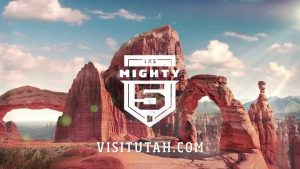 New Westerners come to live here as permanent tourists. They’ve come to be closer to the beauty they have admired for so long and rail against those who extract natural resources from it. But at the same time, they have no problem consuming those resources. They oppose oil/gas production but heat their new homes and power their hybrid SUVs and urge many more of their stripe to join them. They condemn timber extraction but build new 4000 square foot McMansions in the arid deserts and forests of the West. They oppose new dams and water pipelines but xeriscape their lawns and think that makes them good conservationists.
New Westerners come to live here as permanent tourists. They’ve come to be closer to the beauty they have admired for so long and rail against those who extract natural resources from it. But at the same time, they have no problem consuming those resources. They oppose oil/gas production but heat their new homes and power their hybrid SUVs and urge many more of their stripe to join them. They condemn timber extraction but build new 4000 square foot McMansions in the arid deserts and forests of the West. They oppose new dams and water pipelines but xeriscape their lawns and think that makes them good conservationists.
And then they condemn the old timers for not being progressive enough.
As the West becomes less of what it was, what really made the difference?
Us, en masse. Millions of us. We came here to save The West and subsequently ruined it with our sheer numbers and our desire to bring our urban habits with us. I doubt you could get a double-decaf, skinny cappuccino 40 years ago, but who’d be willing to trade it for some real peace and quiet? In today’s rush to be part of The New West, I’m not sure anybody cares.
Jim Stiles is Founder and Co-Publisher of the Canyon Country Zephyr.

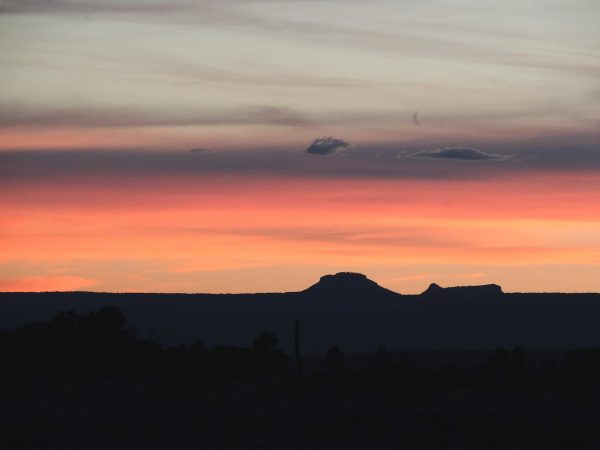


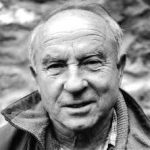
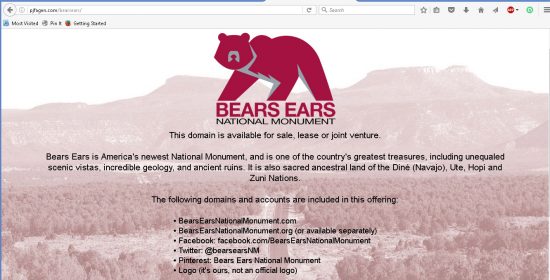

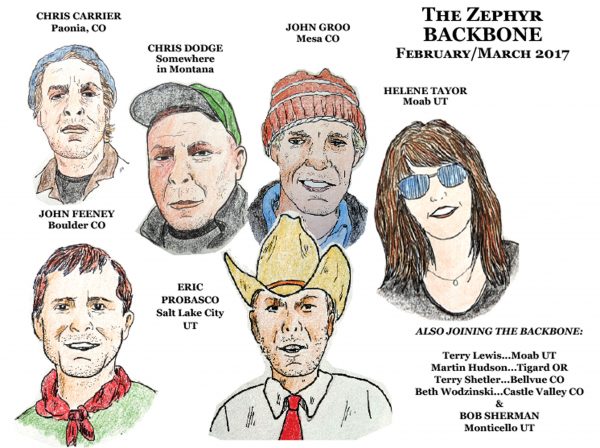

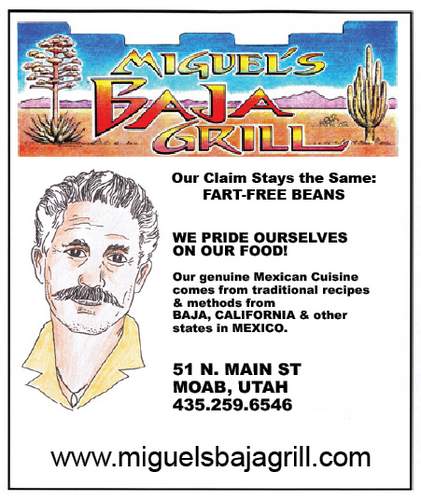
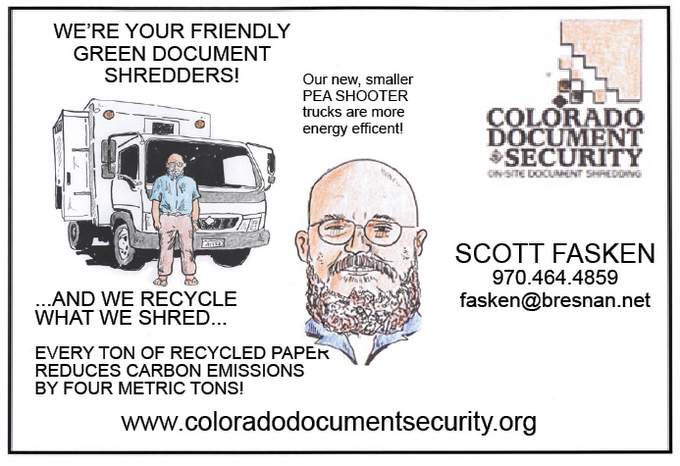

Hey Jim, taking the comments of a few and assuming that all who support the National Monument agree is not seeing the whole picture. I care deeply about the cultural and natural resources of the area, and want to see things happen that will ensure that some of them remain a hundred, a thousand, ten thousand years from now. The small town economies will go the way of the hunter gatherers in that time, with the same kind of trauma. The culprit is unrestrained population growth. They will come, whether any of us want them or not. Industrialized tourism is here and will only grow. Nostalgia for the way things were when we were young will not bring those days back, but drawing lines that restrict behavior may keep some things from being destroyed and lost forever. Leaving the fate of our wild lands to officials elected with dollars from the extractive industry will only mean that the earths teats are sucked for every dollars worth of value before being cast aside, dry and depleted. Thanks for what you do and for keeping the ideas flying. Kevin Jones
Kevin…If I thought these selected opinions only represented a small fraction of the population, I would never have printed them. But they DO represent a growing segment of the rural west’s population.
And speaking of population, you are right to note that expanding numbers are the issue. BUT the 2010 census showed that the four fastest growing states in America–Nevada, Utah, Arizona and New Mexico–all inhabit some of the driest, most inhospitable land in North America. For good environmentalist/progressives who keep moving to towns like Moab and build McMansions and complain about gravel pits in their view shed, what sense does it make to move to such an arid part of the country?
And when you say “small town economies will go the way of the hunter gatherers,” just where exactly is it that they go? Are you really advocating for an all tourism/all the time economy? An economy based on low wage jobs and inflated home prices?
You wrote, “Leaving the fate of our wild lands to officials elected with dollars from the extractive industry will only mean that the earths teats are sucked for every dollars worth of value before being cast aside, dry and depleted.”
If you are referring to the monument itself, everything I’ve read suggests that there are very minimal opportunities for oil and gas development under most of the monument. Yet proponents have insisted that we run the risk of pumpjacks between the Bears Ears themselves. If you are speaking more broadly about extractive industries, we all need to realize that tourism/recreation is the ultimate extractive industry…look at Moab. What else can I add?
Finally, when it comes to protecting the archaeological resources of SE Utah of any public lands, maybe you can help me…I was under the impression that the Archaeological Protection Act of 1979 was passed to beef up the Antiquities Act–that it gave greater enforcement powers, established stronger restrictions and fines. I read that it wasn’t even illegal to collect arrowheads on public lands until ’79. And ARPA applies to ALL public lands, including every square inch of the new monument (except SITLA?).
The federal land officials I’ve spoken to admitted that the ONLY way the monument will provide greater protection is via increased staff for protection. But THAT’s only likely to occur if visitation dramatically increases.
So I have a hard time following the logic–we declare a national monument, based on a 110 year old law that is superseded by a new stronger law. But we know that Monument status will draw new masses of people, and proponents like Josh Ewing are already admitting it will cause impacts. (he even told the SL TRib it may result in “sacrifice areas.”)
So, again, I have to wonder whether this action was taken to protect resources, or if it was done to bolster an Industrial Strength recreation economy and a New West DisneyWorld—what an incredibly dull world we have to look forward to.
The “it would’ve happened anyway” argument is just morally weak; Jim is right to document and object to this cultural genocide of both Indian and white historical use in favor of an infinitely more damaging global economic system, one that is clearly ruining the entire planet.
And the “protection” argument is just wrong, as Jim noted, given the geology in the vast majority of the monument, and the lack of new legal protection and enforcement that the monument entails. In fact, the monument just makes the land marketable, the sudden ability to put asses in the seats as they say in the business. After all the commercial guide permits are issued, the visitor centers built (Muley Point?), the advertising budgets financed, total visitation computed, and monument fees projected, you might see one or two new Indian ranger guide salaries skimmed off the top. After lunch on a hot day, in the five minutes she has until the 1pm busload descends, that poor native might have time to go check the ruin to see which walls were scribbled on, crushed, or knocked down or by the 11am horde.
Far better to have left the land simply forgotten by the infinitely larger, more damaging, and infinitely more hypocritical global tourism industry.
It’s a false dichotomy to insist that the only economic opportunities for rural communities are ranching/logging/energy extraction or waiting tables and cleaning hotel rooms, and the notion of everyone used to make good, steady middle class incomes with extraction is nostalgia for what never was. I’m a sixth generation Utahn with Mormon pioneers on every branch of my family tree. My maternal grandfather was the wealthiest man in his poor Mormon hamlet of 200 people because he established town’s post office and general store, sold insurance, invested even the smallest profits in conservative stocks and available land, started a farm machinery business, and ran 200 head of cattle. he was a small business owner, and other people worked for him. The rest of his many siblings and cousins and townsfolk were trying to get by on JUST running several dozen head of cattle or working on again-off again for the local mines as they boomed and busted. My aunts and uncles’ homes had threadbare rugs and chipped and mismatched dishes, one car for a whole family, hand-me-down furniture till they died. My grandparents were better off because they made the bulk of their income from other parts of the economy besides extraction. People in rural economies can work in a variety of professional fields remotely–I know college professors and attorneys who live full-time in Wayne County and work online and via phone. Aided by rural development grants, they can establish tourism based businesses, becoming well-regarded employers in their communities. They can develop light manufacturing, like Troy Anderson has in Fremont. They can become web developers and social media marketers and work for the BLM, USFS, NPS. All of that can be done in the tiny towns; bigger places like Richfield or Beaver have scores of additional opportunities in health care and government. The false dichotomy of ranching or waiting tables and false narrative of a booming past only serve to victimize rural cultures and communities, and continue policies that perpetuate desecration–and only benefit the executive suites of the mining and energy companies that work so hard to keep the falsehoods in place.
Kirsten, you haven’t solved the problem Jim alluded to…designing web sites can be added to waiting tables and cleaning hotel rooms as low income opportunities for people trying to get by in very small towns. On the other hand, lawyers, college professors, software designers and engineers all need to break into their fields somewhere else besides Monticello, Utah. They need long personal experience and deep knowledge of their customer, and the customer needs deep experience and understanding of exactly what that skilled worker can do. Only then do these highly specialized people have a chance to make a living remotely. The only economic advantage that living in a small town provides is personal knowledge of the land, which can only be used to commodify that locally understood resource in some way, and thus contribute to the land’s destruction. That’s how our civilization destroys the wilderness: first we map it, catalog it, and distribute the information to the public. After that we can all just get out of the way while the land is consumed and the money is made.
You’re missing the point because today’s political arguments have become strictly and desperately economic, a measure of civilization’s decline compared with just 50 years ago. Here’s Robert F. Kennedy, 1968:
“Yet the gross national product does not allow for the health of our children, the quality of their education or the joy of their play. It does not include the beauty of our poetry or the strength of our marriages, the intelligence of our public debate or the integrity of our public officials. It measures neither our wit nor our courage, neither our wisdom nor our learning, neither our compassion nor our devotion to our country, it measures everything in short, except that which makes life worthwhile. And it can tell us everything about America except why we are proud that we are Americans.”
Check out this website too: http://www.agendanewwest.com/
Mark, in your post, NIMBY, better yet, nowhere, April 8, 2016, you wrote:
“Building a gravel pit in the Fremont River Valley is a good Old West example of a private party, in this case a construction company and the politicians like Noel it supports, benefiting at the public’s expense. It is a special interest wins, we lose proposition. A new gravel pit does not need to be here and in fact it does not need to be anywhere.”
Here’s the corollary that proves your exclusive target (mining/extraction) is narrow-minded in the extreme: the air-tour industry fight in Grand Canyon National Park. In a nutshell, John McCain’s involvement over decades proves that in this country, the right to make money trumps public values every time. The example is easily extended to what’s gonna happen in Bears Ears: commercial guide consumes public resource (again, solitude & natural quiet) just by transporting a few clients out to a ruin. And no, there’s never gonna be a wind powered vehicle that can take a tourist from her hotel in Blanding, up and down thru the canyons and out to that ruin. And there’s never gonna be a solar powered aircraft flying tourists over your house near Torrey on their blitzkrieg thru southern Utah (“See all 7 parks and monuments in an hour!”)
In that post you looked at extraction’s size relative to the Utah economy, but what about the more important global economy, which includes tourism as a MAJOR component serving the billions of newly 1st world Chinese tourists for example. Nothing changes the fact that energy and raw materials have to be mined somewhere. I think you linked here begging to be answered, because deep down you knew that NIMBYism is just that…no answer at all. And in fact, your position is essential to climate denialism!
Kirsten…First, in the interests of full disclosure, it would be helpful for those reading these comments to understand that you are the publisher of Torrey House Press, the company that your spouse, Mark Bailey founded.
And Mark Bailey is the person whose vision for Southern Utah (via his blog) was featured in this article and whose comments from the Zephyr facebook page were excerpted.
Also, while I appreciate your family history, and it appears to be a rich one, it would also help to reference your Torrey House Press profile which states, “Though she’s a native New Yorker, Kirsten feels most at home hiking in Utah’s red rock country.” https://www.torreyhouse.org/staff-background
So if I understand correctly, you do not have a personal history, growing up in rural Utah.
Regarding your comments, either you and Mark Bailey are missing my point or you’re both refusing to acknowledge it. Yes, it is possible to re-create a community closer to your liking and send it in a different direction if you can find enough like-minded people with the financial resources and skills to make it happen.
But the long facebook comment thread between Mark and I, which I re-printed in this article, was generated by my attempt to understand just how his ‘vision’ for the future of Torrey and the Rural West would help the people who live there now. And it’s apparent that his vision and yours offer no option other than the complete displacement of families that have been a part of the landscape and the culture of your area for more than a century.
Just read your spouse’s comments.
And Mark Bailey’s recent comment, a link to his latest blog post, which calls for the elimination of agriculture in your area and diverting that water for more housing development keeps making our point for us.
It’s what contributor Doug Meyer called “cultural genocide.”
Jim, you have mentioned the “100 years” of occupation and “more than a century” of local family history. That would seem to be important to you and establish some sort of superior claim to the surrounding landscape. Am I right?
Doug, there are two simple economic concepts I am inferencing to answer the NIMBY question: comparative advantage and externality. Comparative advantage says, in part, that there are better places to grow things and better places to have factories, for instance. National Park gateway residential communities are not best used for industry. Residential areas are bad places for gravel pits. It is why we have zoning. The economic externality is that the cost of loss of property value and pollution is born other than by the industry that is excavating and polluting the community. Regarding no gravel pit at all, existing road base can re re-used including the scrapped up asphalt. Existing gravel pits can be used. For the community to lose property value, suffer pollution and for the county to forego perpetual property taxes so the county commissioner’s crony can save a little on trucking expenses is bad, really bad economics, global or otherwise.
Jim might say he doesn’t want to talk about economics because he is talking about real people. He would have to explain to me what he thinks economics is about.
No Mark. I did not say that the older residents have a “superior claim” to the land. You’re using an old Rush Limbaugh strategy to make your point—you use hyperbole and exaggeration of the facts to create a “straw man argument.” Then you demand that I defend it. But I do believe that a century of hard living by rural Americans—that an investment in families and friends and schools and churches and the land—entitles them to a little respect. You won’t even give them that.
About 15 years ago, I moved to Monticello from Moab. I could not watch what was happening there a day longer. It was like seeing my home turned into a slot machine. For 30 years, my fear about tourism/recreation is that it is like the ultimate extractive industry. It takes the very beauty of the land itself and turns it into a marketable commodity.
For the first 20 years I lived in Moab, I enjoyed being a part of a very interesting community. Back then, even we environmentalists appreciated the diversity of its people, and we loved its history—even its uranium days. They were fascinating times. But then, suddenly, that connection was lost. I was stunned to discover that the latest versions of “New Moabites” had little or no respect for ANYTHING that had ever happened in Moab until the day they arrived. The town began to lose its uniqueness. So I finally moved south to a town that’s 90% LDS. Some people in Moab said, “The Mormons will eat you alive.” But I moved anyway.
I knew the editor of the ‘San Juan Record,’ and Bill asked if I’d like to do a column. I told him ‘no.’ I had seen so many people move to Moab who, within 90 days, were firing off letters to the Times-Independent, already complaining about the lifestyles and habits of the residents they’d recently discovered were their new neighbors. It was sickening to me. So I told him, ‘Give me five years.’ If I’m still here, then maybe I’ll accept your offer. In those five years, I met and befriended many of my neighbors. We treated each other with mutual respect and even affection, even though we often disagreed. Finally, I did start writing stories on a variety of subjects. Some of the articles were sympathetic to the views of San Juan County citizens; other articles challenged them. Even when they disagreed with me, the subsequent arguments and discussions were civil and constructive. And I think it’s because I took the time to get to know them. They knew I wasn’t there to mock them or to condemn every aspect of their lives and history. What was it Atticus Finch told Scout in “To Kill a Mockingbird?”— “You never really know someone until you take the time to stand in their shoes and walk around in them a while.”
THAT’s what I tried to do.
So Mark, it feels to me like you have a sort of cold-hearted approach to all this. It’s all numbers and graphs to you. I’m sure arguments re: “comparative advantage and externality” are important and have their place in the debate too.
But as Ed Abbey once said, “We need more poets and fewer lawyers.” I guess at the end of the day, I feel more at home with those folks that you have such disdain for. I like farmers and ranchers. I like all kinds of people with a variety of backgrounds. I don’t always agree with them, that’s for sure, but I like and respect them anyway. I guess I never dreamed the environmental movement’s leaders would consist mostly of lawyers and bankers, venture capitalists and financiers, advertising agency heads of corporate communications and asset management advisors. It feels soul-less to me. You may be the future of the rural west, but it’s a shame there isn’t more heart in your quest to transform it. And you still haven’t explained just how you replace the human population of rural Utah with a demographic you deem more deserving, in a way that isn’t cruel and demeaning.
There’s not much more that will rankle us westerners than lying and poor manners. Changing ones story about where one is from to fit the discussion or the audience is, well in my world we call that lying. Moving into an area to save us from our selves with ones superior intellect and smugness is poor manners at it’s worst. The comments here supporting this position are beyond disgusting and disturbing. But hey, we’re going the way of the “hunter gathers”, so who cares. Well we care and we’re going to fight you, every inch of the way. We may not have the big sophisticated vocabularies, and we certainly don’t care about the ridiculous “metrics” you point to, but we know what counts: honesty, integrity, family, good manners, and the lands.
This drivel about the new opportunities provided by shutting down public lands to everything but recreation is an outright lie. I’ve been in Moab for 35 years. I’ve seen first hand the new amenities economy brought by the progressives. I’ve seen first hand the destruction of the landscape. There are of course a few old locals who have had the ability and wherewithal to make it work, but most of the money is being made by out of towners or move ins who brought their money with them. Lawyers moving to your town. Had to laugh at that one. That’s a benefit?
Keep up your good work Jim. Keep exposing the utter hypocrisy of these people and the groups that support them. The whole country (with the exception of the progressive urban cesspools on our coasts) has had a stomach full of it, just look at state and national ejections the past few years. Liberals losing governorships, congressional seats, and now the presidency. We’re all seeing through the BS. I suggest they may ultimately be the ones going the way of the “hunter-gathers”. You want to move to our towns? Great, but either accept us for what we are or move elsewhere. Because you folks just have plain bad manners.
And good luck Torrey, I hope you can see these two for what they are, and what they plan for your town. Wonder if they’ve shared their “vision” of utopia with the indigenous population? Probably not, best not to get the simple folk all fussed up…..
Oh, and I will hand it to the savior of Torrey, at least he’s got the huervos to tell us all the plan!
I think it is a false narrative to suggest that extraction and tourism as well as newer tech sector industries cannot all coexist in the rural west. Every activity cannot coexist on the same acre but in the vast expanses of the west, they can all coexist. If people in the west will stop pontificating that their view of how the west should be managed is the only correct view and accept that the “old west” can coexist with the “new west” and plan accordingly, we would find that these endeavors could all work together for the benefit of all the residents of the west – both old school and new breed. The old economy of the west has its place as does the new economy.
Jim, I am a native of the four corners area and have made my living for over thirty years in a. Form of the extractive industries in the west, mostly construction and I will tell you that income source is almost dead. Robotics and population explosion world wide are changing the west I grew up in and loved beyond recognition. And THERE IS NOTHING WE CAN DO ABOUT IT. I hate that but I have come to accept it. Do I believe that without the monument that people wouldn’t find out about this place? No I watched these locusts ruin a a lot of things no one told them about and that had no legal protection whatsoever except the mining laws of the 1880’s. I believe that the monument was necessary as the means to bring all voices to the table. I will say this, the canyonlands under the protection of the NPS is more like it was the first time I was there as a young man in the late seventies than cedar Mesa is as it was then. An example is the state land trust selling off valuable property on comb Ridge, where generations of people had access to land that has now been sold out from underneath them. The monument does not forbid traditional activities in the area it merely attempt to have some reasonable level of control about what happens on this land.
Jim-
I am bowing out. You are play too rough for me. You have not heard or accepted my suggestions. You call me Rush Limbaugh (yes, very offensive), and you accuse me of things like “genocide.” You dodge questions like that hundred year thing and then you go all ad hominem again and call me a “lawyer!” Sheesh.
But I suspect you are a good man. I must just rub you the wrong way. My apologies.
Keep writing (do note all the artists I have supported at THP).
See ya around,
-Mark Bailey
Neoliberal meritarchs come in many ideological flavors -even those sucking the teats of the Wreckreation industry.
How about leaving the land off limits for everyone? “Local” and “immigrant” alike? More Jaspers, Virginias, places for species that need unmolested spaces?
Both Stiles and Bailey miss this mark.
Jim, I’m responding to several points here.
1. “Regarding your comments, either you and Mark Bailey are missing my point or you’re both refusing to acknowledge it. Yes, it is possible to re-create a community closer to your liking and send it in a different direction if you can find enough like-minded people with the financial resources and skills to make it happen.But the long facebook comment thread between Mark and I, which I re-printed in this article, was generated by my attempt to understand just how his ‘vision’ for the future of Torrey and the Rural West would help the people who live there now. And it’s apparent that his vision and yours offer no option other than the complete displacement of families that have been a part of the landscape and the culture of your area for more than a century.”
Jim, I am not suggesting that current rural residents be removed and replaced with a different demographic. I am suggesting that current rural residents can do something different–and more economic–than extraction, that extraction’s time is over and it never was that great. Mark and I are both arguing that the land is more valuable in its natural state and that tourism can be managed to both protect sacred landscapes and support economic development.
2. The accusatory tone of the following suggests that you feel only current locals have authority to direct the management of public lands: ‘Also, while I appreciate your family history, and it appears to be a rich one, it would also help to reference your Torrey House Press profile which states, “Though she’s a native New Yorker, Kirsten feels most at home hiking in Utah’s red rock country.” https://www.torreyhouse.org/staff-background. So if I understand correctly, you do not have a personal history, growing up in rural Utah.’ Jim, when you say “it would also help,” you’re obviously implying some devious intent or identity on my part. I’m not hiding anything, Jim, and don’t need to be “outed” in an accusatory fashion. I’ve been in Utah since the 1970s, and ancestors on both sides of my family got to Utah in 1847, but neither of these data points gives me more authority than someone whose roots lie for generations in another state; nor do they give current locals more authority than I have. The public lands of the West are federally managed for all Americans and are held in trust for all people and the planet.
3. Regarding: “I was under the impression that the Archaeological Protection Act of 1979 was passed to beef up the Antiquities Act–that it gave greater enforcement powers, established stronger restrictions and fines. I read that it wasn’t even illegal to collect arrowheads on public lands until ’79. And ARPA applies to ALL public lands, including every square inch of the new monument (except SITLA?).” Looting and destroying cultural artifacts has been illegal since 1906, though many rural San Juan County residents have insisted that it’s only been illegal since the Archaeological Resources Protection Act of 1979. However, the Antiquities Act of 1906 restricted artifact excavation to professionals and required a permit for excavation. But separate from the letter of the law, looting or destroying the historic homes, tools, and graves of anyone is unconscionable. I don’t think white rural Utahns would think it fine for their ancestral homes, tools, and graves to be taken or damaged.
4. You appear to be suggesting that 1) extraction or tourism are the only choices for rural economies, 2) current locals must have extraction to survive economically, 3) tourism is not a viable economic engine for rural economies, 4) other types of economic development, such as those I offer, are not possible for current rural locals, 5) tourism will decimate the landscape. I reject all of the above.
5. Regarding Bears Ears National Monument, the most significant issue at hand is that five Native nations tried for years to secure protection of the area through Congress, most recently with Bishop’s Public Lands Initiative, but were dismissed and rebuffed at every turn. The Bears Ears Inter-Tribal Coalition requested national monument protection, and it is time to honor tribes.
Shaking my head here.
“The airport could be appropriately expanded …” Would not that require a source of fill or paving material that’s extracted from somewhere? And ignoring the seat mile efficiency and carbon footprint of private aircraft, the GA sides of various airports I’ve spent time in haven’t exactly been shining examples of racial diversity.
So at the local level, the things you want (viewshed, economic opportunity) entail the production (elsewhere, preferably, huh?) of the things you don’t want.
Same at the macro level. Thanks in no small part to people like Jim I’m becoming more aware of the larger goals and political machinery behind much of the “environmental” movement, i.e. David Bonderman. So with a little click time invested it’s interesting to find out how players like Diane Feinstein leverage the support of enviros in any number of opaque deals both for their own benefit and the country’s detriment.
http://www.thenewamerican.com/usnews/politics/item/3629-us-hostage-to-china-for-rare-earth-minerals
Mr. Bailey and others bent on “fixing” their new-found neighbors and communities may want to consider that these are the same folks who for generations have maintained the area in a way that he finds now to be so attractive. It would behoove him to engage and find compromise.
I’ve been off and on reading Stiles’s writings for so many years that I have to laugh at how the one time progressive has devolved to become an ol’ curmudgeon. There’s no changing back and all your story telling about the west with the golden heart that you knew is nothing more than an old man’s memories. I feel the same way about the Alaska I knew but will never be the same way I remember it again. The old ways are always going, no matter where you live. The people you malign here are the future, no matter how much we want it to be otherwise.
The progressives here are consciously waging a war of cultural change, which, when successful, will increase their property values (they hope), and we have suggested here that it’s not a win-win for everybody. The morality of the game is worth talking about, whether or not the arc of history is affected.
Mark Bailey…I wasn’t looking for an argument; you chose to take issue with a story I posted (based on your opposition to a gravel pit) and I subsequently asked you questions that I thought were relevant. That’s my job as a journalist. You’ve identified yourself as an environmental leader in Utah. It seemed appropriate to pursue your comments in a public way.
If nothing else, I appreciated your candor. You offered a remarkably detailed blueprint for an amenities driven New West, free of all the industries you find loathsome (you described them in your blog). All I did was to quote you accurately, provide links to your blog so that your vision could be read in full, and shared them with my readers, many of whom would be directly affected by your dreams of an urbanized New West.
I don’t think that’s “playing too rough.” Like I said, I don’t regard any of this as a game. But it was you who repeatedly identified the people of the rural west as “the enemy.” To me, THAT’s playing rough.
As a non intellectual redneck who has lived in southeastern Utah, all my life I find your disparaging remarks about the local people condescending, and offensive. Contrary to your personal belief that we locals are backward, shortsighted, and ignorant, it may surprise you to know that we too care deeply about the land in this unique part of the world. It is for this reason that we have managed somehow to remain here in red rock county for many generations. We comprehend its wonders and have experienced the majestic beauty it provides despite what you and your envirocrat intelligentsia may think. We hike, camp, explore, and care for this land as much as you do but we also must find a way to provide for ourselves and our families. Multiple use of public lands has given us the flexibility to remain and co-exist and that is why we vigorously defend the concept of multiple use because it has worked for us. Access to the public land is about freedom and having choices for not only economic well being but for social, cultural, and spiritual constructiveness to our surroundings. When outsiders who think they know better than us come in to restrict freedom from that access and start creating monuments to shut us out because they want to “Protect” it, we don’t take kindly to such selfish actions. You are seen as poor neighbors by the local people because you don’t respect our history, culture, or traditions. The difference between you and the local people is that we are willing to share but you are not. When Escalate National Monument and then Bears Ears Monument was arbitrarily forced upon us it only confirmed that we are being systematically driven out and our way of life is being exterminated with extreme prejudice. The political winds have shifted and I for one am looking forward to a more reasonable public land management agenda where the local people have a voice and the extreme environmental crowd is brought under control. Having those two monuments reduced in size or rescinded would please those of us who live here because we locals intend on remaining,
“It’s hard to explain or put it into words why i am against a monument. It is not so much the destroying of economy and community that upsets the local people as it is about the oncoming changes to our economy and community that will likely be irreversible. We are people who don’t make a lot of money, and we don’t care. Our riches come in the form of quiet living, close knit/small communities, deep and spiritual connections to nature and the outdoors, and an independence that comes from making things work in the middle of nowhere (which becomes somewhere and everything to people who have invested their lives into trying their best to be good stewards of the place). Regardless of our race, we love and cherish the land that fosters us, we love our wide open spaces, and we want to share our way of life and traditions with future generations. It’s not about oil. It’s not about whether things should be protected – that’s a no brainer. Locals love these places and don’t want them to be destroyed. Locals want these places to be protected but we see an onslaught of tourists as a problem and not a solution – and added regulations and reduced access to control tourism affects us too. It is about a loss. It is about change. Some of the most pure hearted people I have ever met are tucked away in Utah hills living rural lives and gaining so much goodness from the land that they love most (land that is open to the public but too far out of the public’s way). We maybe don’t know or understand all of the nuances of what is happening behind political curtains but we know the nuances of our culture which is likely to become (or be largely affected and changed by) tourist culture and that is something to be a bit sad about (or in our case, a bit mad about). This is being done to us (not with us), and will affect our day to day lives. We make sacrifices to live in an out of the way place like this because we like living in a place like this. An increase in exposure, human traffic, pollution, change, reinterpretation and misappropriation of current culture (regardless of race), regulations, government control, hokey tourist business ventures and accommodations to the wealthy and the stranger sounds like a personal hell for those of us who love our rural places.”
Interesting quote from Metcalf: ““We need to make (public lands) a high-profile binary issue,” he said.”
[Source: http://www.hcn.org/articles/utahs-outdoor-rec-industry-defends-public-lands%5D
So the outrage machine fueling public lands politics -intends- to reduce complex, interdependent issues of ecology, history, economics and culture to binary terms. I mean, that’s the impression I’ve had, so I guess it’s good to know I’m not just paranoid. Still, no thanks.
I commend you all for your civility; however, like our new President, I am not politically correct. I call a snake a snake when I see it and I call Mark Bailey a pompous, arrogant, intellectually boring narcissist! Perhaps, he should go back to college and learn to do something of real value. Cant you just picture Mark one month after the lights go out — surviving without an audience!
Like Mark, I believe in getting the job done, so with the click of my social media finger, I am sharing Mark’s own words, dripping as they are with condescension for those of us that feed the world, with every rancher in the Utah Cattlemens’ Association and particularly those in Wayne County. They deserve to know there is a snake in their grass.
It’s a bright and shiny day, I’m going for a walk.
Much of the same – anti Monument mantra – was fielded decades ago when Canyonlands/Arches was talked about and then put into place. And yes those locations, I know, are/were not in the backdoor of Monticello, Blanding and Bluff. We can only hope that increasing funding offers at least more seasonal rangers in areas where “abuse” has occurred before, and there is great opportunity for enhanced education amongst a broad segment of the public. Those that live adjacent to these zones, and travel, ranch and have a vested connection, should be like the rest of is, in having to adapt – adjustable and flexible. Be nice in my view if some zones were free of the human element and so A couldn’t then castigate B (and visa versa) over skewed values and interests. And the highway men and women so keyed into economic instability or vitality need only to look across a map at the nation and see what has and has not happened in rural areas across the country. Employment and vitality is important, if people choose to stay in locales. And if necessary economic options will by necessity have to change. I’m not a fence sitter on this issue and I see clearly the rancor, hubris and high mindedness that spills from so many voices on this site. In part it’s called confirmation bias – we all suffer – we all have false memory at times, and we all have bias and prejudice. Myself I deal with businesses in distress, and collaterally with families suffering and without viable health care. In rural areas of this state mental health care suffers badly. I’m not going to say that A, B, or C actor in this debate is a donkey; I will say though that some of the stronger voices carry some very cogent ideas and themes and while we (all of us) need not agree with everything one might say, we could acknowledge that many are trying to live within the system and be productive, socially and economically. Jim is the publisher and editor of this paper and leads out with his “piece” and then hooray, a chorus of ubiquitous voices responds. Jim doesn’t like what’s happened to Moab well then by Gawd who likes what’s happened to the Wasatch Front in the past 50 years? Should we all scream about that? You people that hated Obama and this and any other monument? Do you also hate and demean the other National Parks in the State? And putting an industrial driver on a preservation effort is a rather dark omen. None of us folk know the future. What the economic up and down tick will be; what the future of health care will be; will employment offer to the younger generation – and will folk in their 40-60”s or whatever be able remain gainfully employed. It’s a challenge I know – I’m familiar with other rural zones in Utah – matters are grim. Thanks for the valiant effort, those of you (here) that tried to frame and fashion alternatives and ideas (anger and hate are emotion); but I have emotion too and am imperfect. The land, laws, culture and society – what a jumbled mix.